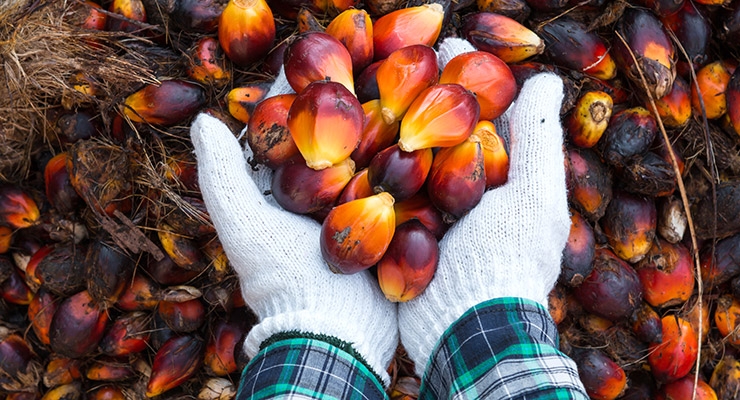Linda Gilbert, Founder & CEO, EcoFocus Worldwide01.11.16
No longer satisfied with ingredient labels that tell what their foods and beverages are made with, shoppers are seeking products with shorter ingredient legends and more information about where those ingredients come from.
New research confirms that clean eating is top-of-mind as people shop the supermarket aisles. Shoppers are telling us that simpler really may be better when it comes to health and the health of the planet. As a consumer health and sustainability trends analyst, I was particularly interested in learning what American consumers are thinking about sustainable ingredients and Malaysian sustainable palm oil.
EcoFocus Worldwide recently released results of our annual national survey of 4,000 Americans ages 18 to 65 years old. We discovered that when we grocery shop, we always/usually/sometimes choose foods and beverages:
• For health reasons (92%)
• For environmental reasons (85%)
If you’re like most people, you’ve been thinking about the nutritional value of many of the items you place into your grocery cart for a long time now. More recently, you may also be giving thought to its environmental impact, and the social and environmental responsibility of the company producing it.
The EcoFocus survey discovered that 57% of grocery shoppers said that a product’s ingredients have a big influence on their opinion of a brand’s eco-friendly reputation. And 56% said country of origin information about ingredients is important to their product choice. Almost two in three shoppers (61%) said they have already heard about sustainable palm oil, and 63% want to learn more about sustainable palm oil.
But how does Malaysian sustainable palm oil, specifically, fit with some of the other opinions and trends we identified? We compared our data on shopper priorities with activities by the Malaysian palm oil industry, described at the recent Global Oils and Fats Forum held in Los Angeles, CA.
Here’s how palm oil matches up with the attitudes of U.S. grocery shoppers:
 • 52% said that seeing Non-GMO Project Verified on the labels is extremely or very important. Malaysian palm oil is non-GMO.
• 52% said that seeing Non-GMO Project Verified on the labels is extremely or very important. Malaysian palm oil is non-GMO.
• 79% are extremely or very positively influenced by a corporate commitment to protect wildlife. The Malaysian palm oil industry is very actively involved with wildlife conservation, including the establishment of the Malaysian Palm Oil Wildlife Conservation Fund.
• 49% are trying to avoid or limit trans fats. Malaysian palm oil is naturally trans fat free.
• 74% said that a company’s commitment to use ingredients that are certified to be sustainable is extremely or very influential to their purchase decision. About 80% of all palm oil in the U.S. is from Malaysia, where it is produced sustainably.
Linda Gilbert is founder/CEO for EcoFocus Worldwide and founder/former president of HealthFocus International. She has more than 30 years experience as a market researcher and strategy consultant linking consumer attitudes and health interests with product benefits. To track wellness and sustainability consumer trends, EcoFocus syndicates a national tracking study of U.S. adults ages 18-65 years, with annual subscriptions and custom questions available for clients. The annual EcoFocus Trend Study surveys 4,000+ U.S. consumers.
New research confirms that clean eating is top-of-mind as people shop the supermarket aisles. Shoppers are telling us that simpler really may be better when it comes to health and the health of the planet. As a consumer health and sustainability trends analyst, I was particularly interested in learning what American consumers are thinking about sustainable ingredients and Malaysian sustainable palm oil.
EcoFocus Worldwide recently released results of our annual national survey of 4,000 Americans ages 18 to 65 years old. We discovered that when we grocery shop, we always/usually/sometimes choose foods and beverages:
• For health reasons (92%)
• For environmental reasons (85%)
If you’re like most people, you’ve been thinking about the nutritional value of many of the items you place into your grocery cart for a long time now. More recently, you may also be giving thought to its environmental impact, and the social and environmental responsibility of the company producing it.
The EcoFocus survey discovered that 57% of grocery shoppers said that a product’s ingredients have a big influence on their opinion of a brand’s eco-friendly reputation. And 56% said country of origin information about ingredients is important to their product choice. Almost two in three shoppers (61%) said they have already heard about sustainable palm oil, and 63% want to learn more about sustainable palm oil.
But how does Malaysian sustainable palm oil, specifically, fit with some of the other opinions and trends we identified? We compared our data on shopper priorities with activities by the Malaysian palm oil industry, described at the recent Global Oils and Fats Forum held in Los Angeles, CA.
Here’s how palm oil matches up with the attitudes of U.S. grocery shoppers:
• 79% are extremely or very positively influenced by a corporate commitment to protect wildlife. The Malaysian palm oil industry is very actively involved with wildlife conservation, including the establishment of the Malaysian Palm Oil Wildlife Conservation Fund.
• 49% are trying to avoid or limit trans fats. Malaysian palm oil is naturally trans fat free.
• 74% said that a company’s commitment to use ingredients that are certified to be sustainable is extremely or very influential to their purchase decision. About 80% of all palm oil in the U.S. is from Malaysia, where it is produced sustainably.
Linda Gilbert is founder/CEO for EcoFocus Worldwide and founder/former president of HealthFocus International. She has more than 30 years experience as a market researcher and strategy consultant linking consumer attitudes and health interests with product benefits. To track wellness and sustainability consumer trends, EcoFocus syndicates a national tracking study of U.S. adults ages 18-65 years, with annual subscriptions and custom questions available for clients. The annual EcoFocus Trend Study surveys 4,000+ U.S. consumers.



























